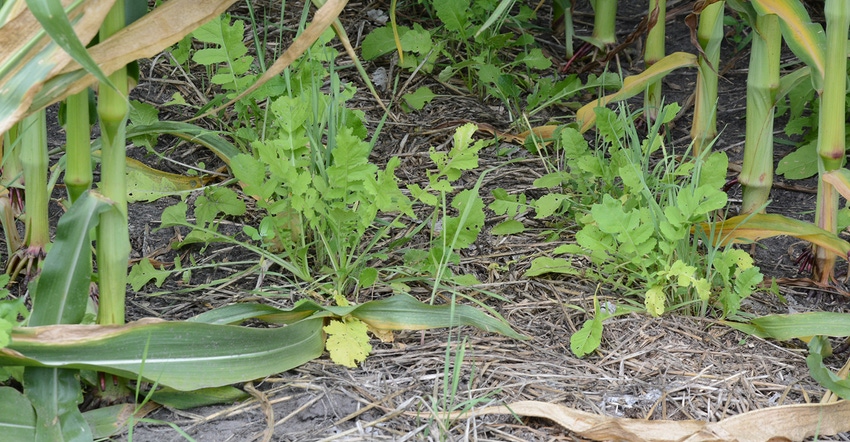October 29, 2018

By Fawad Shah
In one way, a cover crop does just what it says: It covers the soil during the period between the harvest of one crop and the planting of the next.
Use of cover crops protects soil from erosion, retains nutrients, increases organic matter and reduces water runoff. Cover crops can also break up soil compaction and suppress weeds by competing for nutrients, sunlight and space.
While the use of cover crops has many short- and long-term benefits, it is important to use good-quality seed to achieve those ends. Be aware that low-quality cover crop seed may germinate poorly and not provide the needed ground cover.
Another risk of using inferior seed is the introduction of unwanted weeds or crops. Seed of unknown quality may contain noxious weed seeds that can then become established on a farm where such weeds did not previously exist. Eradication of accidentally introduced weeds such as Palmer amaranth can pose an enduring challenge long after the cover crop season is over. The presence of other crops that persist over winter or have herbicide tolerance may be additional challenges.
Reputable seed dealers know how to handle and condition seed to remove impurities, properly sample and obtain the necessary tests for correct labeling. They will also be able to answer questions about the origin or the seed. Thus, users of crop seed of unknown origin that has not been properly labeled are taking a number of unwarranted risks.
State law: All seed must be labeled
Cover crop seed sellers may think they don't need to label their product, since the seed is not being used to produce a crop. However, the Minnesota Seed Law requires that all seed sold be properly labeled. The law has zero tolerance for the presence of prohibited noxious weed seed in any seed offered for sale in the state. The information printed on the seed label will include the seed’s origin, germination and purity percentages. Seed labeling provides information important to the buyer.
In addition to checking for a proper label, buyers should find out if the seed they are considering is of a variety protected by the USDA Agricultural Research Service’s Plant Variety Protection (PVP) Office. It is important to note that cover crop seed is frequently a variety of small grain that is under PVP. PVP often requires that the seed be sold as a class of certified seed.
The status of PVP protection can be found by searching the variety name at the USDA ARS plant variety protection webpage, ars-grin.gov/cgi-bin/npgs/pvp/pvplist.pl . This simple tool helps buyers comply with federal and state seed laws, and avoid litigation and fines. Owners of the PVP varieties enforce their PVP rights, resulting in expensive penalties to violators.
The Minnesota Department of Agriculture, University of Minnesota and Minnesota Crop Improvement Association are working together on an education and outreach campaign to raise awareness about the use of good quality cover crop seed. By using good quality seed, of known origin, farmers will obtain the intended benefits of a cover crop and help prevent the introduction of noxious weeds into Minnesota.
Shah is president and CEO of the Minnesota Crop Improvement Association.
You May Also Like




